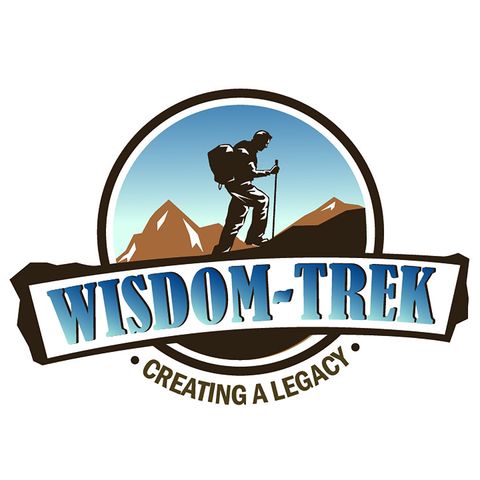Day 966 – Answers From The Dead Sea Scrolls – Wisdom Wednesday

Regístrate gratis
Escucha este episodio y muchos más. ¡Disfruta de los mejores podcasts en Spreaker!
Descarga y escucha en cualquier lugar
Descarga tus episodios favoritos y disfrútalos, ¡dondequiera que estés! Regístrate o inicia sesión ahora para acceder a la escucha sin conexión.
Descripción
Wisdom-Trek / Creating a Legacy Welcome to Day 966 of our Wisdom-Trek, and thank you for joining me. I am Guthrie Chamberlain, Your Guide to Wisdom Answers From The Dead...
mostra másWelcome to Day 966 of our Wisdom-Trek, and thank you for joining me.
I am Guthrie Chamberlain, Your Guide to Wisdom
Answers From The Dead Sea Scrolls - Wisdom Wednesday
Thank you for joining us for our five days per week wisdom and legacy building podcast. We are broadcasting from our studio at ‘The Big House’ in Marietta, OH. Today is Day 966 of our Trek, and it is Wisdom Wednesday. Creating a Biblical Worldview is important to have a proper perspective on today’s current events. To establish a Biblical Worldview, it is required that you also have a proper understanding of God’s Word. Especially in our western cultures, we do not fully understand the Scriptures from the mindset and culture of the authors. In order to help us all have a better understanding of some of the more obscure passages in God’s Word, we are investing Wisdom Wednesday reviewing a series of essays from one of today’s most prominent Hebrew Scholars Dr. Micheal S. Heiser. He has compiled these essays into a book titled ’I Dare You Not to Bore Me With the Bible.’
While there were many fragments of manuscripts available from the Old Testament previously, newly found manuscripts last century opens our understanding more fully of the ancient times. Today’s essay will explore:
Answers From The Dead Sea Scrolls
The Dead Sea Scrolls, discovered between 1947-1956, transformed biblical studies. Found in a series of caves near an archaeological site on the northwestern shore of the Dead Sea known as Qumran, they contributed to research on ancient scribal practices and the history of the Hebrew language. But beyond this research, the scrolls also directly affected an issue that has long been debated—the Old Testament canon. Did this find solidify what should or should not be included in our Bibles?
The word “canon” refers to the collection of books considered sacred and authoritative by a religious community—in this case, Judaism and Christianity. Historical evidence reveals that within the Jewish community, there was still uncertainty about some books such as Esther and the Song of Solomon, or portions of books, specifically Ezekiel 40-48 after AD 100. The question of whether Jewish leaders of earlier centuries had similar doubts—or different ones—was shrouded in mystery before the discoveries at Qumran.Fragments of all the Old Testament books in the current Protestant evangelical canon have been found among the scrolls—all except the book of Esther. However, its omission by the Jewish community at Qumran does not indicate much about its canonical position today.
The omission of the book tells us nothing about how the Qumran community actually felt about Esther. The Dead Sea Scrolls discovered in modern times are only a fraction of the material originally stored at Qumran. The ravages of time have left us an incomplete picture, nullifying such a definitive conclusion.
In addition, the Jews at Qumran were one sect of Judaism among several. Even if there was evidence that they had rejected Esther, that position would have represented only a segment of opinion. Even today, major segments of modern Christendom do not agree on the canon. That certain books meet approval or disapproval provides no guidance as to which opinion is correct.Beyond this, Qumran scribes often indicated a book’s sacred status by citing the book as authoritative for some point of belief or practice in their community documents. They also indicated a book's sacred status through produced commentaries. However, not every biblical book of today’s Old Testament canon meets this criterion. For example, Judges, Jeremiah, and Job are never cited in community documents; they have not been the focus of a commentary. The incomplete nature of the discovery makes this no surprise. Conversely, the scribes at Qumran considered some books canonical tha...
Información
| Autor | Harold Guthrie Chamberlain III |
| Página web | - |
| Etiquetas |
Copyright 2024 - Spreaker Inc. an iHeartMedia Company
